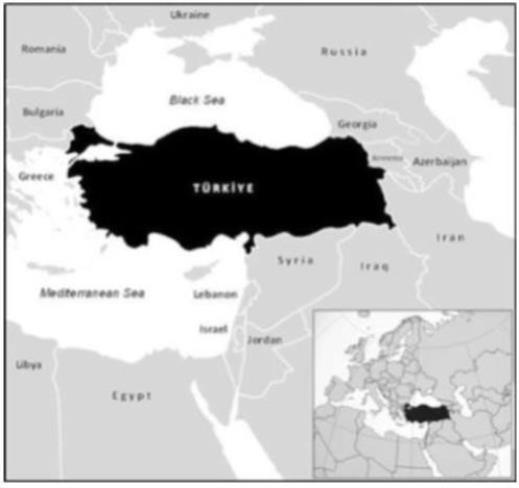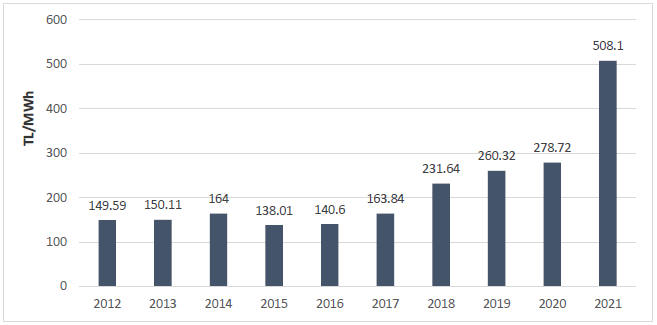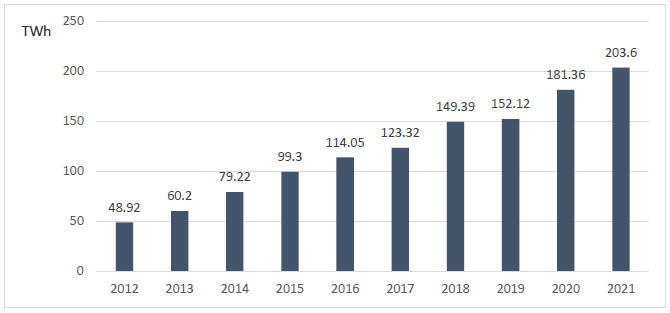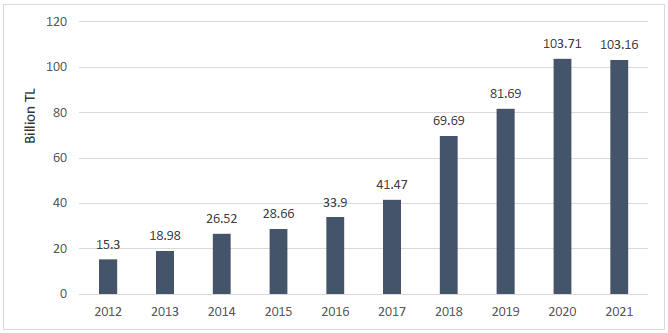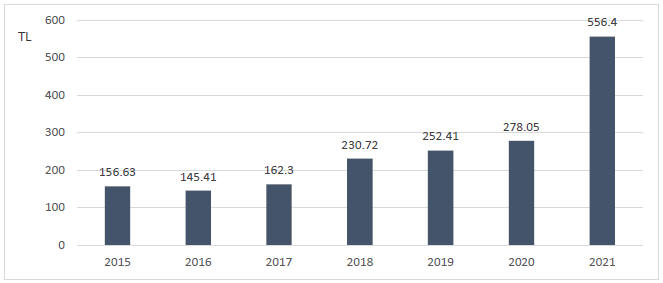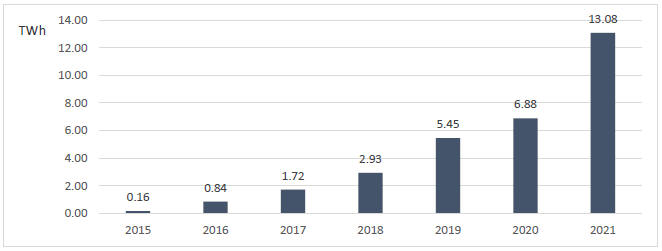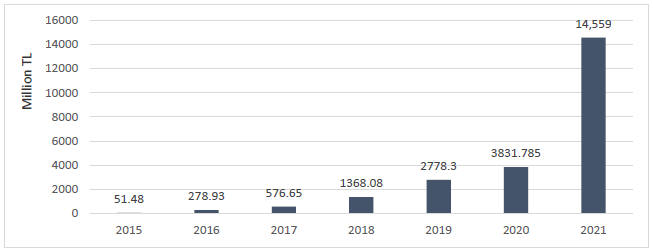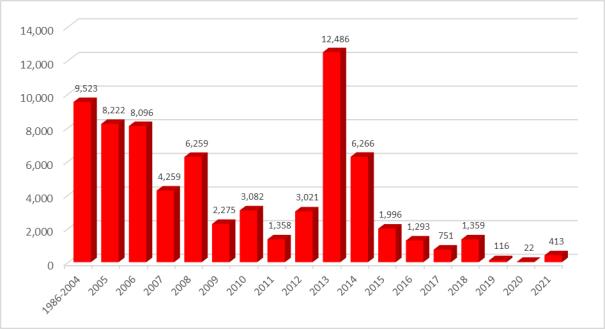In 2017, around 921,000 tourists from Türkiye visited Greece. In the same year, Türkiye attracted almost 595,000 tourists from Greece. In 2018, around 781,000 tourists from Türkiye visited Greece, whereas Türkiye received about 665,000 Greek tourists. In 2019, Türkiye attracted 820,142 tourists from Greece, while 789,315 tourists from Türkiye visited Greece. In 2020, about 136,000 tourists from Türkiye visited Greece and Türkiye received 135,000 tourists from Greece. In 2021, about 144,000 tourists from Türkiye visited Greece and Türkiye received 134,000 tourists from Greece.
The Aegean Sea
There are a number of closely linked and interrelated disputes in the Aegean between Türkiye and Greece, which include: the breadth of territorial sea and national airspace, delimitation of territorial sea and continental shelf, sovereignty of small islands & islets, violation of Eastern Aegean demilitarized status of islands and service areas FIR, SAR, NAVTEX. Türkiye is in favor of achieving a comprehensive, fair and lasting solution to all Aegean disputes in accordance with international law.
Firstly, the breadth of territorial waters in the Aegean are currently at 6 nautical miles for both Türkiye and Greece. Greece’s efforts to extend the breadth of territorial waters is one of the major disputes in the Aegean Sea. Any further extension of Greek territorial waters beyond 6 nautical miles will block Türkiye’s access to international waters and severely hinder freedom of navigation in the Aegean Sea.
Secondly, continental shelf boundary between two countries is yet to be delimited. The main reason distorting the equity and complicating the delimitation of continental shelf are the Greek islands located in the close vicinity of Turkish mainland. Türkiye aims for an equitable delimitation of continental shelf in the Aegean Sea, where special geographical circumstances prevail.
Thirdly, Greece claims that her national airspace is 10 nautical miles, despite her breadth of territorial waters being only 6 nautical miles. This is in contravention of international law. A US State Department report to the Congress in 2020 confirmed that Greece is the only country in the world with unmatching territorial sea and airspace claims. In this framework, Greek claims on the so-called airspace violations of Türkiye are baseless. Greek military aircraft conduct flights close to Turkish mainland, violate Turkish airspace even on Turkish land territory and harass Turkish aircraft flying in the Turkish and international airspace.
Fourthly, there is also the dispute of certain insular formations in the Aegean Sea, which were not ceded to Greece through valid international treaties. The dispute is closely related to a lack of territorial sea delimitation agreement between the two countries.
Violation of the demilitarized status of Eastern Aegean Islands by Greece in violation of international treaties is the fifth dispute in the Aegean. The sovereignty of those islands were ceded to Greece by 1923 Lausanne and 1947 Paris Peace Treaties with the condition that they would be kept demilitarized. Greece has been in material breach of her legal obligations of 1923 Lausanne and 1947 Paris Peace Treaties since 1960s, through troop concentrations, establishing permanent military installations and conducting military activities in the Eastern Aegean Islands. Those islands are in close proximity to the Turkish mainland. Their location and status have had implications for Türkiye’s national security perceptions. Türkiye rejected and protested these violations from the very outset, both at bilateral level and at the UN and NATO. Türkiye sent two letters in 2021 to the UN and urged Greece to reinstate the demilitarized status of the Aegean islands. Türkiye pointed out the legal consequences of illegal Greek actions. One of which is that these militarized Greek islands shall be disregarded in maritime boundary delimitation (nonopposability in maritime boundary delimitation of sovereign title owing to material breach of treaty obligations on which sovereign title is based). Greece tries to avoid taking up this dispute in bilateral negotiations and referring it to the ICJ. Instead of correcting its illegal conduct, Greece chose to distort Türkiye’s messages and present them as provocations in order to mislead international public opinion.
Lastly, the dispute of service areas is another source of dispute in the Aegean. Flight Information Region (FIR) is an area defined for providing air navigation services. Greece has been attempting to impose FIR as an area of sovereignty and labels the use of international airspace over the Aegean by Turkish military aircraft without prior notification as violations. This interpretation of FIR has no legal basis. Also, Turkish and Greek search and rescue regions are overlapping in the Aegean Sea. The cooperation and coordination is essential and the foremost concern in SAR operations is the safety of human life, however Greece strongly objects to coordination for that purpose. Türkiye is ready to engage in discussions to establish the required arrangements on search and rescue services as stipulated in the Articles 2.1.4 and 2.1.5 in the Annex to 1979 Hamburg Convention, in order to ensure the safety of human life in the region.
Türkiye and Greece have established multiple dialogue mechanisms to address the Aegean disputes. Türkiye is fully committed to the peaceful settlement of these disputes through sincere dialogue and meaningful negotiations in a spirit of mutual understanding. It would serve the interests of both countries and the whole region to defuse tensions and create conditions that would ensure the development of friendship. In this regard, Türkiye expects Greece to adhere to good neighborly relations and believes in the utmost necessity of engaging in bilateral contacts to resolve the outstanding disputes in the Aegean and the Mediterranean.
Cyprus
Developments in the Cyprus Settlement Process
Following the inconclusive closing of the Conference on Cyprus convened in Crans-Montana in July 2017 after the sides failed to reach an agreement, the UN Secretary-General called on the two sides, as well as the Guarantors, to reflect on the shortcomings of the Conference and steps to be taken to foster a meaningful process in the future. Türkiye has been engaged in such a process in close consultation with the Turkish Cypriot authorities.
In early July 2018, the UN Secretary-General appointed Ms. Jane Holl Lute, a senior UN official, to consult with the parties of the Conference to help determine whether there was a common ground and vision for a meaningful process.
Türkiye shared with Ms. Lute that it is not excluding any ideas, being that current parameters have not yielded positive results in the last 50 years. On the other hand, before starting any new process, all sides need to agree on what principles the new process will be built upon.
The UN Secretary-General, in his report on his Good Offices Mission dated October 15, 2018, pointed out the need to find new ideas and called on all parties to agree on “terms of reference” that would constitute the consensus starting point for a possible negotiated conclusion.
In the course of 2019, Ms. Lute has met several times with the Turkish and Greek Cypriot leaders as well as the guarantor states in an effort to finalize a “terms of reference”.
The UN Secretary-General met informally with the Turkish and Greek Cypriot leaders on November 25, 2019. In his statement following the meeting, he underlined that he has agreed to extend his efforts to achieve terms of reference to serve as a consensus starting point for phased, meaningful, and results-oriented negotiations at the earliest feasible opportunity and he committed to explore with the Turkish Cypriot leader and the Greek Cypriot leader and with the guarantor states the possibility to convene an informal five-plus-UN meeting at an appropriate stage.
The UN Secretary General has paused his efforts towards a settlement until the end of the Presidential elections in North Cyprus.
The Turkish Cypriot Presidential elections, which was scheduled to be held in April 2020, was postponed due to the COVID-19 pandemic. The leader of the National Unity Party and Prime Minister Ersin Tatar, who advocated a two-state settlement won the elections held on October 18, 2020.
Following the elections, Ms. Lute has resumed her contacts with the two sides on the Island and the guarantor states with a view to holding the informal five-plus-UN meeting.
62

